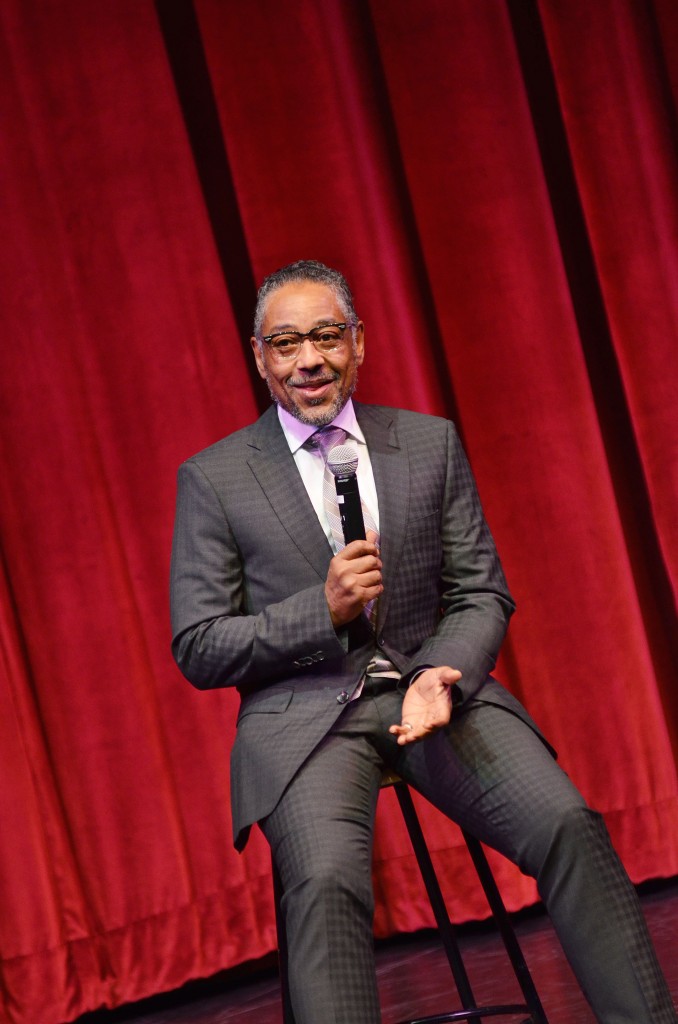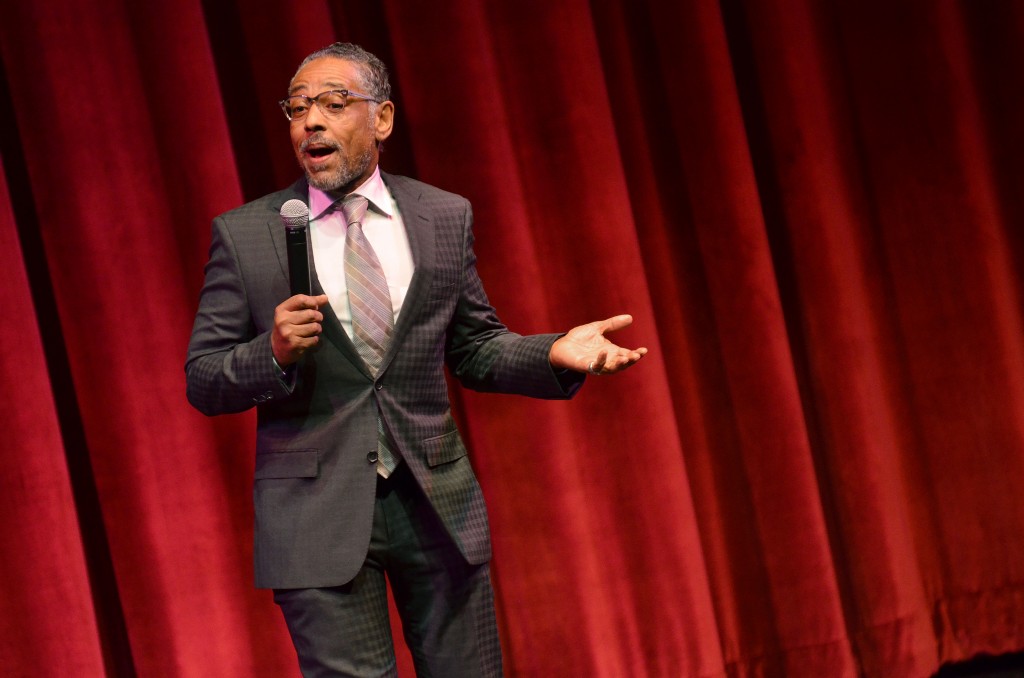
If a villainous drug lord gave you advice, would you listen? Maybe not, but you might listen to the successful actor who played him.
Giancarlo Esposito pushed open the doors to the Anderson Center’s Chamber Hall and strutted up the stairs to the stage, his face beaming beneath a pork pie hat. The crowd went wild.
Esposito, best known for playing duplicitous kingpin Gustavo “Gus” Fring in AMC’s award-winning drama “Breaking Bad,” came to Binghamton University on Friday evening to inspire students with a pep talk-like lecture on his journey to reaching stardom.
The actor, who was upbeat with a loose sense of humor — much unlike the stoic Gus Fring — laid out the ups and downs of his acting career, from acting in plays in his youth to his most recent projects as a director. But first, he gave the audience the allusion they were waiting for.
“There’s a meth lab in the basement,” Esposito joked.
Esposito’s parents, who were performers, exposed him to the industry at a young age. Esposito said he felt lucky that he found his calling early in life, and that when asked, “Is this truly what you want?” he confidently thought, “Yes, this is truly what I want. This is what makes me happy.” He called himself a creative artist, a public speaker and a teacher.
Esposito spoke to students about finding a passion, making connections and not losing sight of dreams. He gave the audience trite advice to pursue whatever would make them happy, but the advice came with a twist: He told them to detach themselves from the dream. With the detachment would come greater opportunity for success.
“There are all these little paths that we need to try out,” Esposito said. “There’s a reason that they’re there.”
A person sticking to just one road, according to Esposito, would remain ignorant of a world full of other possibilities — ones that could make for a happier lifestyle.
“Each and every one of you has a calling, even if you don’t know what that is yet,” Esposito said.
To notice the things and people around them, Esposito suggested that the crowd take a break from work and technology. He said that it’s hard to stay grounded in a generation where news travels immediately and things are constantly changing. But when focused on neither time nor money, a person can stay in control of chasing after goals and consistently meet more people and take bigger steps to achieve those goals.
Esposito listed the things he’s currently working on to improve both his acting career and his personal life.
“There are two things that are hard for me: I can’t admit that I’m wrong. And I can’t say, ‘I don’t know,’” Esposito said.
He said he was impatient and would often need to take deep breaths or meditate to get back in touch with his inner core, which would clear his thoughts and also snap him back into character if acting in a scene.
While playing Gus Fring, Esposito said he would always need to stay focused to believably portray his villainous character, and was consistently impressed by co-worker Bryan Cranston, who could easily switch modes between playing the monstrous, meth-making family man Walter White to being funny and sarcastic as he is in real life.
Esposito filled his lecture with other anecdotes. For him, the most entertaining moment behind the scenes of “Breaking Bad” was when Aaron Paul, who played Walter White’s protege Jesse Pinkman, ran around his office dressed up in a Los Pollos Hermanos chicken suit. Of course, the entire crowd giggled when Esposito uttered the words “Los Pollos Hermanos” in his infamous Fring-like solemn voice.
Following the talk, a handful of students were able to ask Esposito questions. He discussed the show’s production and delved into deeper questions regarding race and pursuing a career in a predominantly white industry.
Esposito said that there is no separation between a “black Hollywood” and a white one, and it’s easier for any actor to fill a part regardless of race: He’s currently directing a film based on true events where he plays the protagonist, a man who was white in real life.
With a powerful voice, energetic demeanor and a contagious laugh, Esposito hopefully succeeded in inspiring the 250 attendees, and the students who listened to the talk walked out of the lecture with a newfound sense of assertiveness, not afraid to dream big.



